Episodes
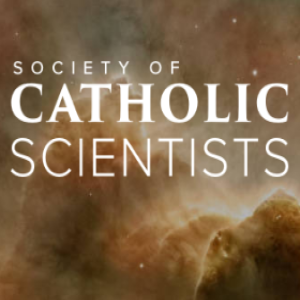
Monday Jun 06, 2022
Bonus - Society of Catholic Scientists 2022
Monday Jun 06, 2022
Monday Jun 06, 2022
Quick hit running down the SCS Conference for 2022 at Mundelein Seminary outside Chicago. The conference theme was the environment.
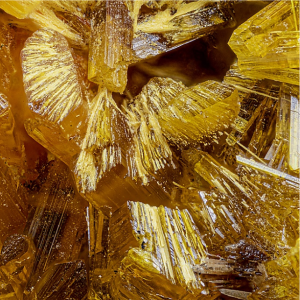
Saturday Apr 30, 2022
Ep 139 - Pondering Big Issues Powered by Uranium
Saturday Apr 30, 2022
Saturday Apr 30, 2022
-
In this episode, Paul and Bill situate themselves geographically, updating each other on their latest activities and changes in locale. Paul is on a medical mission to Billings, Montana, at the moment. Bill has moved from South Bend, where he was an adjunct professor at Holy Cross College, to Troy, NY, the hometown of his wife.
-
Uranium mining is on Paul’s mind during his brief departure from Wyoming Catholic College in the small town of Lander. As a PhD geologist, Paul will make a presentation on the modern-day considerations of uranium mining and nuclear power at the 2022 conference of the Society of Catholic Scientists. The conference will be held on the first weekend of June at Mundelein Seminary near Chicago. (Brother Guy Consolmagno, SJ, a consecrated brother in the Jesuits and a distinguished astronomer, will be honored by the SCS this year with its St. Albert the Great Award.)
-
The inconveniences of uranium, says Paul, who has studied it since his graduate studies at the University of Notre Dame, stem from its undeniable value for power generation—and some characteristics he described as compellingly “weird.” He takes us on a professor’s tour of the periodic table and the uranium mining regions near his campus.
-
Kazakhstan and Russia are key sources of uranium. In-situ leaching is a growing source for uranium elsewhere in the world, including in the US.
-
Every state regulates uranium and any mining activities. For example, Texas has a Commission on Environmental Quality. There is a complex history of regulation of uranium and nuclear energy at both the state and federal levels.
-
Paul referred to Bill’s membership in the international Secular Franciscan Order.
-
Paul offers a survey of opinions and alternatives in energy policy for the Earth. For a very recent and well-informed video treatment of sustainable energy choices for the future, see “Can We Cool the Planet?” at PBS’s NOVA series website.
-
India is probing possibilities for thorium as a source of nuclear energy. China is staking much of its energy future on nuclear power. In the US and elsewhere, politicians must get more serious about addressing crucial, conflict-ridden challenges, such as the storage and reprocessing of uranium.
-
A note: Paul recommends the episodes on Nietzsche and Epicurean philosophy from the “Food 4 Thought” podcast, presented by Jonathan Kutz, which covers philosophy and science from Christian perspective. It’s a natural for fans of “That’s So Second Millennium.” You can access “Food 4 Thought” on several platforms, including Anchor and Audible.
-
Cover photo: Yellow needle-like crystals of studtite ([(UO2)(O2)(H2O)2] · H2O) on flat orange crystals of becquerelite (Ca(UO2)6O4(OH)6 · 8H2O). Ex Gilbert Gauthier, via Adriana & Renato Pagano. Collection and photo by Gianfranco Ciccolini, as seen at mindat.org.
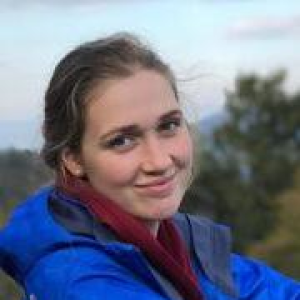
Monday Aug 09, 2021
Episode 130 - Natasha Toghramadjian’s Research into Earth-Shaking Impacts
Monday Aug 09, 2021
Monday Aug 09, 2021
- Welcome to this 130th episode of our podcast. Here’s a lively conversation between two geoscientists—testifying to the opportunities for Society of Catholic Scientists (SCS) members to enjoy discussions which are at once elevated by their personal values and grounded in their diverse, expert explorations of God’s creation.
- Paul spoke with Natasha Toghramadjian, a Ph.D. student in geophysics—and seismology in particular—at Harvard University. She performs wide-ranging research on earthquake dynamics and risks in California and around the world. She spent a year in Armenia on a US Fulbright research grant to design a study on future earthquakes there and the connection between risk preparedness and regional politics.
- Toghramadjian, a student member of the SCS, was a speaker at the 2021 national conference in Washington, DC. See the video of her talk here, at about the 7-hour, 19-minute mark. The talk was titled, “Earthquakes, their Consequences, and the Jesuit Pioneers of Seismology.”
- This podcast conversation included Toghramadjian’s mentions of the earthquake hazards in Oklahoma and the Newport-Inglewood Fault in California, considered more dangerous than the San Andreas Fault for the Los Angeles region. A note from Natasha: at one point just before the 16 minute mark, she said "40 meters" when she meant "40 miles onshore."
- She discussed with Paul the common but wrong view that we hold Christian beliefs despite natural evidence. Scientists use natural evidence, including the enduring laws of physics, chemistry, and biology, in their attempts to understand God’s creation more fully. The two agreed that science and religion are in harmony as paths for pursuing the truth amid great mystery.
- A “keeper” quote from Toghramadjian: “Every human you encounter is an imperfect representation of whatever they say they stand for. . . . It’s very easy to point to a bad example, a person, rather than point to the source material that we’re all trying to follow but we all inevitably fall short of because we’re fallen.”
Show notes prepared by TSSM co-host Bill Schmitt
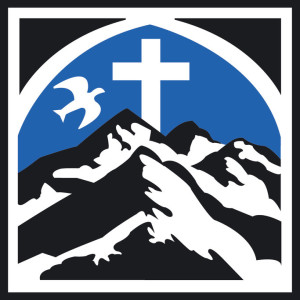
Monday Jul 26, 2021
Bonus Episode July 2021
Monday Jul 26, 2021
Monday Jul 26, 2021
Paul gives an update on his move to Wyoming to take a faculty position at Wyoming Catholic College. We are looking forward to bringing you more Society of Catholic Scientists conference speaker interviews in August.
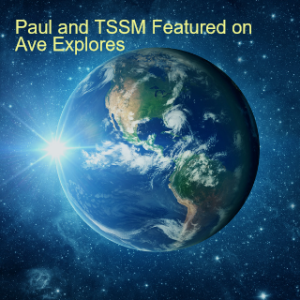
Friday Apr 30, 2021
Paul and TSSM Featured on Ave Explores
Friday Apr 30, 2021
Friday Apr 30, 2021
Paul had the privilege to be interviewed for the Ave Explores podcast series on faith and science. Check out the episode here:
https://www.avemariapress.com/aveexplores-faith-science/podcast-giesting
Thanks to Katie Prejean McGrady and Erin Pierce with Ave Maria Press for this unique opportunity!
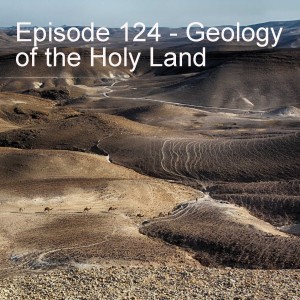
Monday Apr 26, 2021
Episode 124 - Geology of the Holy Land
Monday Apr 26, 2021
Monday Apr 26, 2021
Paul and Bill discuss the basic geological features of the Holy Land, like its geomorphology and tectonics, or translated into lay terms, the reasons why its landscape takes the form that it does and why it suffers a lot of earthquakes. Paul discusses the need for a book bringing together the best geologists and the best textual experts to collaborate and discuss the possible relationships between the texts of the Old Testament and other ancient Near Eastern writings and the geologic record of the Holocene. If that book already exists, let us know in the comments!

Monday Feb 22, 2021
Episode 120 - Wyoming Catholic College
Monday Feb 22, 2021
Monday Feb 22, 2021
This episode had to be rushed in due to Paul's travel schedule. He got to visit a location peculiarly dear to his heart, Lander, Wyoming, and give a talk at Wyoming Catholic College. It's just Paul's cut of the raw audio, bonus-episode style, since we had to record it Sunday afternoon. Paul and Bill discuss the visit and the substance of his field exercise, including how the ideas of our friend Nicolaus Steno and the 18th century James Hutton play out in a live outdoor setting: Derby Dome in the Wind River Basin, or as it is most often called these days, Johnny behind the Rocks.
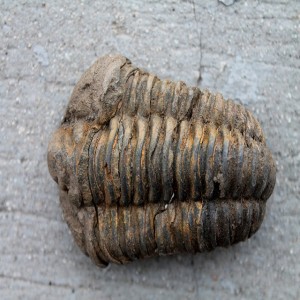
Monday Feb 08, 2021
Episode 119 - Evolution in Christianity and Geology (rerun)
Monday Feb 08, 2021
Monday Feb 08, 2021
A rerun of Episode 6.
Do not blame Morgan for the sound quality of this episode! All complaints should be directed to Paul at the email link at https://www.thatssosecondmillennium.net.
Bill and I hope to be back in action soon.
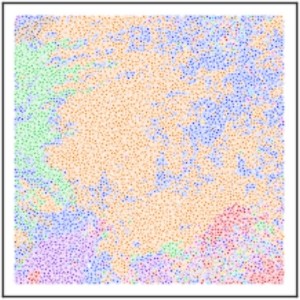
Monday Jun 22, 2020
Episode 104 - Scraping Facts Online: If You Can’t Beat ’Em, Datum
Monday Jun 22, 2020
Monday Jun 22, 2020
- At the time of this taping, Paul was in the middle of the Metis “bootcamp” program learning the capabilities, tools, and insights of data science. This conversation ranged widely in the realm of data analysis and management, examining its relevance to Paul’s field of geology but also exploring the world’s immersion in what Bill would call a data ecology: It seems every datum is connected, or connectable, to every other datum That word is the original singular form of the plural word “data.”
- The growing plethora of data has to be tracked and organized, even though today’s computer hardware doesn’t allow all the world’s data—or even relatively large slices of that data—to be stored and analyzed in one place at one time. Realizing that words are data, too, Paul pointed out that geology encountered a data explosion crisis a few decades ago as science developed enough new names for various rocks to make the new information less useful. That was until geologists produced a plan for sorting out and categorizing rock names according to rocks’ bulk chemistry instead of their constituent minerals (example here). Paul came to see the value of advanced organization in obtaining, thinking, and acting upon geological data—hence, his pursuit of this certificate in data science.
- Discussion of this specific field of science led to the use of various other terms, with various meanings, none of them fully understood by Bill. The terms included informatics, data scraping, the analysis of data clustering, “big data,” and “machine-learning algorithms.” These terms can be anticipated to be influential in nearly all fields, so it behooves the layperson to develop some familiarity with them. It is quite possible to become skeptical of such a body of knowledge and skills that can be used for benevolent or malevolent purposes, like everything. But Paul said the hopeful side of his personality recognizes what data scientists already recognize—namely, that this amazingly powerful field also has its limitation.
- He recalled there is an author who currently is writing books with a robust skepticism about machine-learning. Separately, one can get a laugh from the current results seen in the hybrid field of machine-learning poetry. Bill guessed the author was Julia Evans, but it was likely Janelle Shane, the author of You Look Like a Thing and I Love You.
- The bottom line is that, as with all science, its tools and results cannot provide their own guidance on how to use wisely the fruits they bear. The guidance must come from external forces driven by human virtue and values.
Liner notes by Bill. Audio editing by Morgan. Cover art for this epsiode was produced by Paul... in conjunction with the Landsat 8 mission, the scikit-learn and seaborn libraries, and Mauna Loa and Kilauea volcanoes. (See his final project slides here.)
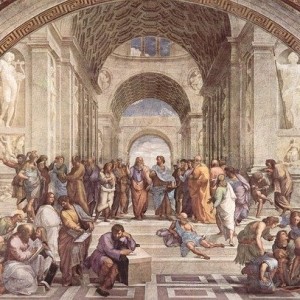
Monday Jan 27, 2020
Episode 093 - The Great Divorce between Philosophy and Science
Monday Jan 27, 2020
Monday Jan 27, 2020
Bill and Paul are both losing their minds with stress this week, so we're glad to just get the episode out. It takes in a bit of philosophy and Paul manages to use some illustrative points from the history of geometry and geology if that's your thing.
I didn't get her credited in the outro, but Morgan Burkart produced the audio for this episode. Like her style? Let us know in a review and look her up at Ball State University.

